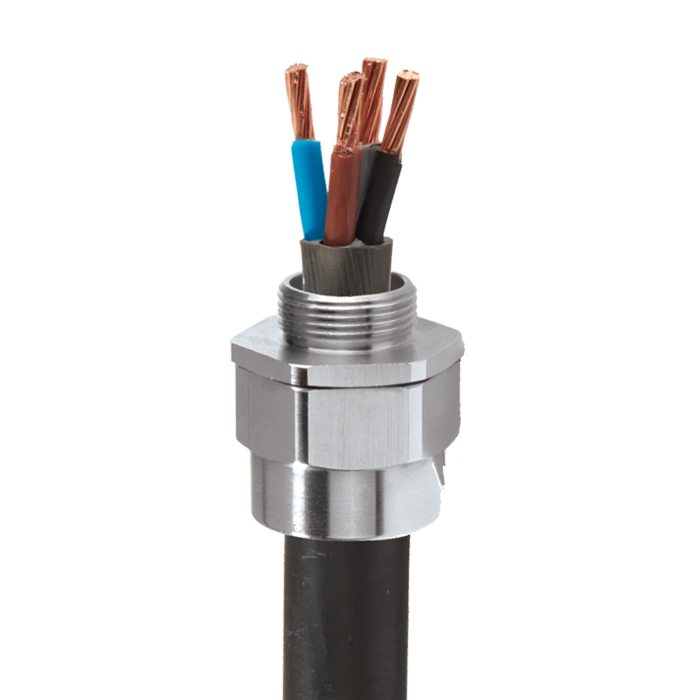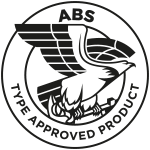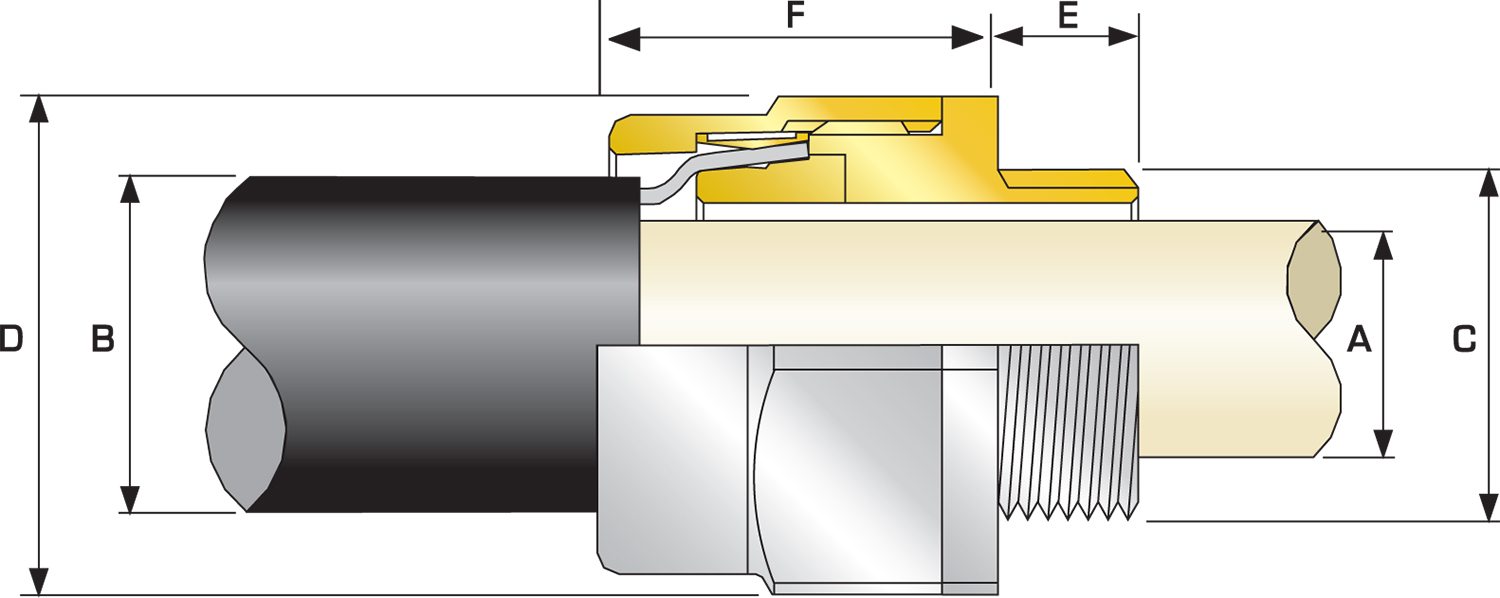- Home
- Cable Glands
- Products
- Industrial / General Purpose
- BWL | Industrial Cable Gland
BWL | Industrial Cable Gland For all types of Steel & Aluminium Wire Armoured Cables
We'd like to keep in touch
We have some exciting things in the pipeline - if you'd like to be the first to know please enter your email address below.
Heavy Duty Industrial Cable Gland
• High quality durable materials
• Simple, effective two part arrangement
• Metal-to-metal armour clamping
• Direct & remote installation
• Permanently crimped, low impedance earth termination
• Secure against self-loosening
• Robust, heavy duty design
• Longer body protects armour wires from impact
• -60°C to +200°C
• Superior EMC performance
| Design Specification | BS 6121:Part 1:1989 |
| Mechanical Classifications * | Impact = Level 8, Retention = Class D |
| Enclosure Protection | IK10 to IEC 62262 (20 joules) |
| Electrical Classifications * | Category B |
| GOST R Certificate | POCC.GB.HA46.H00140 |
| Marine Approvals | LRS: 01/00171 , ABS: 16-LD1472056-PDA |
| Continuous Operating Temperature | -60°C to +200°C |
| Ingress Protection Rating ** | IP2X |
| Cable Gland Material | Brass, Electroless Nickel Plated Brass |
| Cable Type | Single Wire Armour (SWA), Aluminium Wire Armour (AWA) |
| Armour Clamping | Detachable Armour Cone & AnyWay Universal Clamping Ring |
| Optional Accessories | Locknuts, Earth Tags, Serrated Washers, Entry Thread Seals, Shrouds,Ingress Discs |
| Optional Installation Tools | Spanners, Armour Former Tool |
Note : * Mechanical & Electrical Classifications applied as per IEC 62444 & EN 62444
** Refer to Maintaining a Seal for further information on Ingress Protection Ratings
As IEC 62444 and EN 62444 do not cover cable glands which are supplied without cable sealing rings, the information provided here is for information only.
Certificates
Product Selection Table
Click here to view how to order
| Cable Gland Size | Available Entry Threads 'C' (Alternate Metric Thread Lengths Available) | Cable Bedding Diameter 'A' | Overall Cable Diameter 'B' | Armour Range | Across Flats 'D' | Across Corners 'D' | Protrusion Length 'F' | Combined Ordering Reference (*Brass Metric) | Shroud | Cable Gland Weight (Kgs) |
||||
| Metric | Thread Length (Metric) 'E' | Max | Max | Min | Max | Max | Max | Size | Type | Ordering Suffix |
||||
| 20S16 | M20 | 0.39 | 0.34 | 0.52 | 0.03 | 0.05 | 0.94 | 1.04 | 1.39 | 20S16 | BWL | 1RA | PVC04 | 2.96 |
| 20S | M20 | 0.39 | 0.46 | 0.63 | 0.03 | 0.05 | 0.94 | 1.04 | 1.27 | 20S | BWL | 1RA | PVC04 | 2.68 |
| 20 | M20 | 0.39 | 0.55 | 0.82 | 0.03 | 0.05 | 1.20 | 1.32 | 1.20 | 20 | BWL | 1RA | PVC06 | 4.13 |
| 25 | M25 | 0.39 | 0.79 | 1.03 | 0.05 | 0.06 | 1.42 | 1.56 | 1.43 | 25 | BWL | 1RA | PVC09 | 5.47 |
| 32 | M32 | 0.39 | 1.04 | 1.33 | 0.06 | 0.08 | 1.81 | 1.99 | 1.28 | 32 | BWL | 1RA | PVC11 | 7.76 |
| 40 | M40 | 0.59 | 1.27 | 1.59 | 0.06 | 0.08 | 2.17 | 2.38 | 1.44 | 40 | BWL | 1RA | PVC15 | 13.05 |
| 50S | M50 | 0.59 | 1.50 | 1.84 | 0.08 | 0.10 | 2.36 | 2.60 | 1.56 | 50S | BWL | 1RA | PVC18 | 16.51 |
| 50 | M50 | 0.59 | 1.74 | 2.09 | 0.08 | 0.10 | 2.76 | 3.04 | 1.54 | 50 | BWL | 1RA | PVC21 | 15.31 |
| 63S | M63 | 0.59 | 1.97 | 2.34 | 0.08 | 0.10 | 2.95 | 3.25 | 2.05 | 63S | BWL | 1RA | PVC23 | 29.84 |
| 63 | M63 | 0.59 | 2.20 | 2.59 | 0.08 | 0.10 | 3.15 | 3.46 | 1.96 | 63 | BWL | 1RA | PVC25 | 28.85 |
| 75S | M75 | 0.59 | 2.44 | 2.84 | 0.08 | 0.10 | 3.54 | 3.90 | 2.51 | 75S | BWL | 1RA | PVC28 | 52.42 |
| 75 | M75 | 0.59 | 2.68 | 3.09 | 0.10 | 0.12 | 3.94 | 4.33 | 2.26 | 75 | BWL | 1RA | PVC30 | 58.63 |
| 90 | M90 | 0.94 | 3.15 | 3.56 | 0.12 | 0.16 | 4.50 | 4.95 | 2.62 | 90 | BWL | 1RA | PVC32 | 86.77 |
| Dimensions displayed in inches unless otherwise stated | ||||||||||||||
| Cable Gland Size | Available Entry Threads 'C' (Alternate Metric Thread Lengths Available) | Cable Bedding Diameter 'A' | Overall Cable Diameter 'B' | Armour Range | Across Flats 'D' | Across Corners 'D' | Protrusion Length 'F' | Combined Ordering Reference (*Brass Metric) | Shroud | Cable Gland Weight (Kgs) |
||||
| Metric | Thread Length (Metric) 'E' | Max | Max | Min | Max | Max | Max | Size | Type | Ordering Suffix |
||||
| 20S16 | M20 | 10.0 | 8.7 | 13.2 | 0.8 | 1.25 | 24.0 | 26.4 | 35.2 | 20S16 | BWL | 1RA | PVC04 | 0.08 |
| 20S | M20 | 10.0 | 11.7 | 15.9 | 0.8 | 1.25 | 24.0 | 26.4 | 32.2 | 20S | BWL | 1RA | PVC04 | 0.08 |
| 20 | M20 | 10.0 | 14.0 | 20.9 | 0.8 | 1.25 | 30.5 | 33.6 | 30.6 | 20 | BWL | 1RA | PVC06 | 0.12 |
| 25 | M25 | 10.0 | 20.0 | 26.2 | 1.25 | 1.6 | 36.0 | 39.6 | 36.4 | 25 | BWL | 1RA | PVC09 | 0.16 |
| 32 | M32 | 10.0 | 26.3 | 33.9 | 1.6 | 2.0 | 46.0 | 50.6 | 32.6 | 32 | BWL | 1RA | PVC11 | 0.22 |
| 40 | M40 | 15.0 | 32.2 | 40.4 | 1.6 | 2.0 | 55.0 | 60.5 | 36.6 | 40 | BWL | 1RA | PVC15 | 0.37 |
| 50S | M50 | 15.0 | 38.2 | 46.7 | 2.0 | 2.5 | 60.0 | 66.0 | 39.6 | 50S | BWL | 1RA | PVC18 | 0.47 |
| 50 | M50 | 15.0 | 44.1 | 53.1 | 2.0 | 2.5 | 70.1 | 77.1 | 39.1 | 50 | BWL | 1RA | PVC21 | 0.43 |
| 63S | M63 | 15.0 | 50.0 | 59.4 | 2.0 | 2.5 | 75.0 | 82.5 | 52.0 | 63S | BWL | 1RA | PVC23 | 0.85 |
| 63 | M63 | 15.0 | 56.0 | 65.9 | 2.0 | 2.5 | 80.0 | 88.0 | 49.8 | 63 | BWL | 1RA | PVC25 | 0.82 |
| 75S | M75 | 15.0 | 62.0 | 72.1 | 2.0 | 2.5 | 90.0 | 99.0 | 63.7 | 75S | BWL | 1RA | PVC28 | 1.49 |
| 75 | M75 | 15.0 | 68.0 | 78.5 | 2.5 | 3.0 | 100.0 | 110.0 | 57.3 | 75 | BWL | 1RA | PVC30 | 1.66 |
| 90 | M90 | 24.0 | 80.0 | 90.4 | 3.15 | 4.0 | 114.3 | 125.7 | 66.6 | 90 | BWL | 1RA | PVC32 | 2.46 |
| Dimensions displayed in millimeters unless otherwise stated | ||||||||||||||
Generic Cable Considerations
Unarmoured Cables When cable glands are designed to suit a range of different cable types they will often provide basic sealing and mechanical retention through the use of a sealing ring on the cable outer sheath, for example, in the case of an unarmoured or screened cable. Cable gland solutions for unarmoured cable would need to cater for a reasonable acceptance range so that the most popular cables fit comfortably within the minimum to maximum range.
Read moreEarth Tags & CIEL (Cast Integral Earth Lug)
In the event that cables have a high fault current carrying capacity, via their single wire armour configurations, the fault rating of the cable may be higher than those of the standard CMP earth tags. In this case it would be inadvisable to use standard earth tags, as it is important to match the rated fault current of the earth tag to the corresponding fault current rating of the cable armour.
Read moreEquipotential bonding
Potential equalization involves all exposed and peripheral conductive parts being connected to the equipotential bonding system. Connections to the bonding system would usually include metal conduits, metal cable sheaths and steel wire armouring (or other types of metallic armour) as well as protective conductors and metallic parts of structures. IEC 62444 requires the equipotential bonding of cable glands for braided & armoured cables to be checked after cable anchorage tests are performed.
Read moreVisit our Knowledge Base for technical expertise and advice, gathered over CMP's 60+ years' experience in the art of terminating cable glands.
Sign up now




